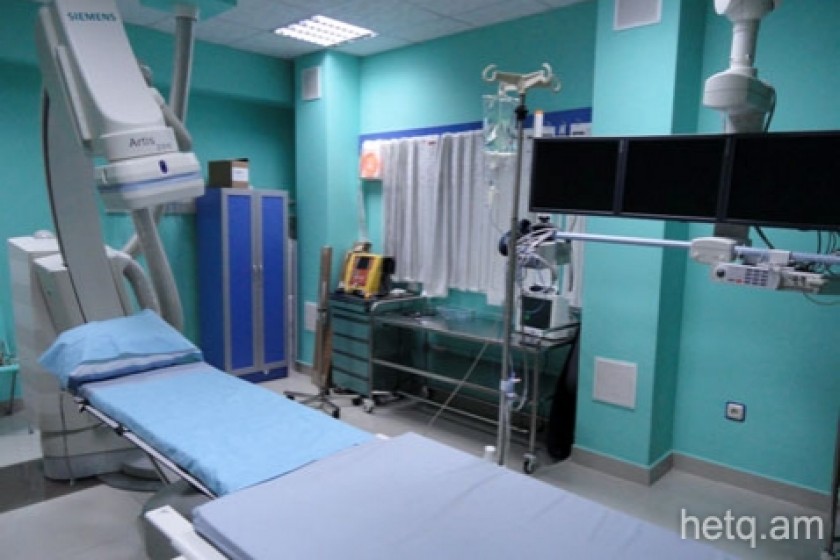
Gyumri Medical Center Director: Invasive Cardio Treatment Might Cease if Patients Continue Avoiding Paying
Now that cardiologist Karen Mikayelyan has moved to Gyumri, Shirak residents with coronary ailments no longer have to travel to Yerevan or abroad to receive stent placements and angiograms.
As of May 1, patients can get such invasive procedures done at the Gyumri Medical Center.
According to Center Director Armen Isahakyan, this wasn’t the case even though the hospital had all the necessary medical equipment for such procedures.
‘We had the equipment from the day the hospital opened, but we lacked a specialist,” Isahakyan told Hetq.
Since moving with his family from Yerevan, Mikayelyan has performed some forty coronary stent procedures and thirty angiograms.
Mikayelyan says that each procedure costs from 1.3 million to 1.8 million AMD ($3,170 to $4,390), adding that the cost mostly depends on the materials used.
Despite the widespread occurrence of cardiovascular disease in Armenia, Mikayelyan notes that people, even those diagnosed with coronary problems, continue to lead unhealthy lifestyles – drinking, smoking and poor diets. Armenians, in general, also avoid physical activity if possible.
Mikayelyan says that many arrive at the hospital when coronary disease has reached an extreme stage. When they do, they often cannot pay for such lifesaving medical procedures and are forced to borrow from friends and family.
The cardiologist urges people to pay more attention to preventive medicine as a way to forgo such costly treatment.
Gyumri Medical Center Director Isahakyan points out that while patients save transportation and other costs by getting treated locally, many attempt to avoid paying for such procedures.
“As physicians, we have no right to deny any patients. We cannot tell them that they have to pay up front. That’s not our approach,” says Isahakyan.
He adds that a contract is signed prior to surgery, but after the procedure has been completed the hospital is hard-pressed to locate the patient for payment.
This year, the hospital has already amassed 12 million AMD ($29,258) in unpaid patient medical bills.
There’s a real risk that the hospital might have to forego such coronary procedures if patients continue to shirk paying.
Staffers at the hospital I spoke to were somewhat perplexed as to why patients receiving treatment in Yerevan or overseas are quick to pay their bills while in Gyumri they avoid such obligations.
Cardiologist Mikayelyan says that prior to each stent procedure the hospital must procure some 100 stents just to make sure they have the appropriate one on hand for each patient.
He notes that some medical supply companies are hesitant to continue doing business with the hospital because of mounting unpaid bills.
Director Isahakyan says starting next year the hospital will introduce a plan whereby financially strapped residents with acute myocardial infarctions will receive one stent placement paid for by the governmenton a waiting basis.
For now, the hospital doesn’t want to legally prosecute non-payers, even though management believes such a step will convince others to pay and thus avoid lengthy and costly court cases.
 Videos
Videos Photos
Photos




Write a comment